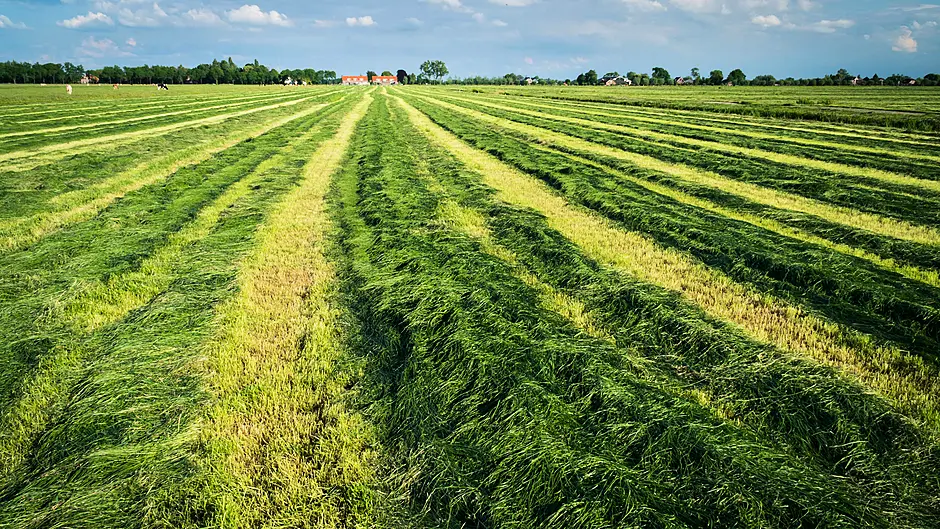THE government’s package to support beef and drystock farmers in silage making has been welcomed, but only as an interim measure.
All sectors, including dairy who have been excluded from availing of the €1,000 payment from the state to help with fodder bills, will need a further dig out next Spring.
That’s according to IFA Munster chair Harold Kingston who said many beef and drystock farmers had yet to even purchase their fertiliser for this season, so it was only fair they got this aid.
‘But the reality is that the €55m package won’t go far enough even for them,’ said the Courtmacsherry farmer.
However, Irish Creamery and Milk Suppliers’ Association (ICMSA) president Pat McCormack was scathing of the dairy sector’s exclusion, calling it ‘disgraceful’ and a discriminatory move. He said it demonstrated animosity towards the dairy sector that is held by certain elements in government.
According to analysis by Teagasc, global milk prices will mean that dairy farmers will come out with almost the same income as last year.
But Harold forecasts that next February will really be a pinch time for farmers if there’s not enough fodder made over the summer.
‘The reality is that every sector will need more help as the year goes on whether that’s through low interest loans or a top-up on existing payments. The potential is there for all sectors to be in trouble by the end of the year, so future supports can’t be sector specific.’
Macra na Feirme national president, John Keane agreed the silage package was a step in the right direction.
‘But at current fertiliser prices this will support farmers to purchase approximately one tonne. Much more is going to be needed in order to ensure that fodder security and indeed food security for next autumn and winter.’
Drilling into the figures, he said that with a suckler cow eating approximately 13kg/DM silage per day this package will support the feeding of six to seven suckler cows over a five months.
‘What is now needed is clarity on the detail of the package and the requirements of farmers to access the support. There is also a need for Teagasc to ascertain the potential gap in fodder that may exist after the package is availed of by farmers. With cash flow a continued issue for smaller farmers this package needs to be available quickly to provide direct support,’ he added.
ICSA president Dermot Kelleher emphasised that the cattle and sheep sectors cannot carry the burden of massive inflation in feed, fertiliser and fuel costs.
‘This is confirmed by examination of Teagasc National Farm Survey outlook figures which suggest that dairy incomes are continuing to rise and will likely be 10-15 times higher per hectare than cattle and sheep systems in 2022.
‘On the other hand, there are credible reports from our members that finishing cattle this winter will not be profitable unless beef reaches €7/kg. It is very worrying that many suckler farmers are now selling out when they see that selling a cull cow is more profitable than selling an in-calf cow. This is a real measure of suckler farming economics and it demonstrates clearly the need for more support if we want farming to survive in many of the more marginal areas.’
He said the ICSA believes that the €1,000 silage support to the cattle and sheep sectors is not enough, but it is at least recognition that their sectors are under extreme pressure.
‘However, none of this takes away from the fact that the Cap Strategic Plan is a disaster for the cattle and sheep sectors.
‘Convergence is crushing the viability of many beef finishers but the failure to include a coupled payment for sucklers and sheep means that the new Cap is not fit for purpose. ICSA will be arguing strongly for more targeted support from exchequer funds to alleviate the shortcomings of the CAP plan for cattle and sheep sectors.’
Concluding, Harold said the government needs to get ‘more imaginative’ with their supports over the next 12-18 months. ‘A more coordinated approach needs to be taken rather than this scatter-gun approach we’ve seen so far.’








